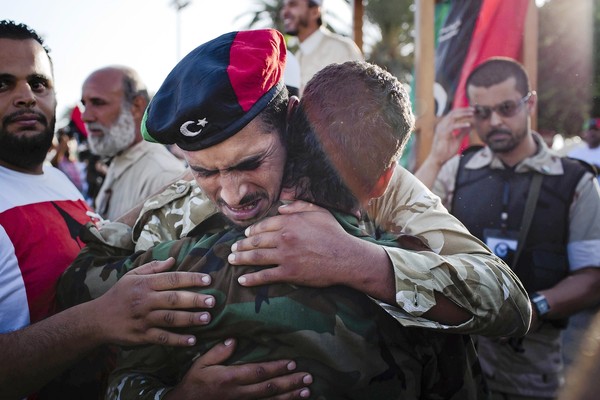
From Paul Richert, the Los Angeles Times: Despite signs of dangerous fractures among the Libyan rebels who ousted Moammar Kadafi, the United States and its European allies have ruled out a significant nation-building role or major infusions of aid to the postwar government in Tripoli.
The moves toward disengagement reflect the allies’ desire to scale back after a 5 1/2-month air war that strained their militaries and treasuries, and exposed their leaders to criticism at home.
The United States, France and Britain were the leading participants in the NATO campaign. President Obama and his French counterpart, Nicolas Sarkozy, are especially eager to put the war behind them because of approaching elections. . . .
"In a way, they’re declaring victory and moving on," said Robert Danin, a retired U.S. diplomat in the Middle East who is now with the Council on Foreign Relations. "But things could go south, and these countries could be looking at a far different picture."
For now, at least, the war-weary allies say the post-Kadafi government can rebuild the battered country with its own money, even though Libya’s oil and gas sector may need two years to recover.
"Libya is a rich country," said Victoria Nuland, the chief State Department spokeswoman, echoing a view voiced by European officials. . . .
U.S. and European officials say they will provide some aid, but it will be far less than in other conflicts. As a result, U.N. Secretary-General Ban Ki-moon has appealed for greater support, and an internal U.N. report warned "limited donor funding [is] available" because of perceptions Libya can use oil revenue to pay for its recovery. . . .
A senior European official, asked whether governments in Europe would consider sending a force to restore order if the postwar period erupted in violence, said he was "very reluctant" to speculate.
"Suffice it to say, we are truly hoping that the situation does not go bad," said the official, who asked to remain unidentified because of the diplomatic sensitivity of the issue.
Jorge Benitez, director of the NATOSource blog at the Washington-based Atlantic Council, said the sentiments were shared in the Obama administration.
"Hope," he said, "has always been a big part of the administration’s strategy in Libya." (photo: Daniel Berehulak/Getty)
Image: getty%209%201%2011%20Libyan%20rebels.jpg
